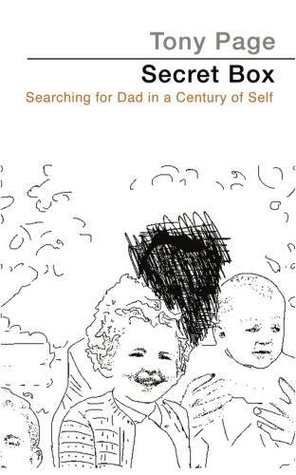The Book:
The true story of a psychologist who takes off his professional hat and returns to his ‘60s childhood. His quest is to solve the mystery of what happened to his father and his family. Guided by diaries, letters, photographs, visits and family recollections, he finds out what made him a psychologist in the first place.
File Size: 525 KB
Print Length: 258 pages
Page Numbers Source ISBN: 1999960718
Publisher: Telling Stories Press (February 11, 2018)
Publication Date: February 11, 2018
I thank the author for providing me a
Reviewer's Copy in exchange for an honest review!
My Review:
I don't think I have ever read a book that handles the issues of digging the past so realistically.
The story, very simply, follows the second-hand reconstruction of a man's life (and of those around him) in a quest for answers and explanations. If you are a product of the silent generation, you will know what this means. I can faintly recall this scene from my favorite TV show New Girl,
Jess: Families talk about things.
Schmidt: No. Families ignore things until they go away.
This is what makes the story and the book in entirety so different, but also a highly risky narrative: we cannot know someone's story for sure, and in my hyperbolic opinion, we cannot even know our own story completely ever. But as the book mentions too: the act of storytelling is curative and therapeutic. Closures are sought by all of us and they are highly underrated. Or in the words of the author, 'Silence denies us understanding while truth lets us live and breathe.'
I know there are things I would like to lash out at my family for- and I am only 22! So looking at the narrator's journey of weaving together these remnants seems painfully realistic, and raw.
My favorite bits were two. One was the fact that the story wold often pause: to take a look back at the ethical quandaries involved- sometimes within the process that our protagonist/narrator was pursuing, sometimes on the actual incidents being talked about:
‘As a writer you permit no privacy to the dead: if they leave diaries you have to read them and in this we are utterly unsentimental. To be a writer means to tell the truth you need to tell’.
The other favorite bit was the psychological tangent it took: and kept, realistically. For example, it doesn't exaggerate it as a moment of epiphany for the whole family just to make it a great, fun plot. It just states the truth: The truth that often the passage of time creates an unease for you, but the others may not feel it with the same intensity of unease, or even, at all. So the rest of the family isn't presented to be as bothered, or restless by the turn of events.
A lot of research shows, and often concepts have been explained from an informed perspective which is reassuring, but also the jargon seems unnecessary in the larger scheme of things.
In a way, this book to me is the written adaptation of the movie Dil Dhadakne Do, and my review for both stays the same: a long-awaited look at the aftermath of living in dysfunctional families and semi-functional individuals, scarred and marred by what the rest of the world offered them- with the story stretched just a bit more than the reader wants to stay for, before losing it.
‘Don’t make it a box of secrets, as people did in the old days, because untold stories are poisonous, and as soon as a story is told, the healing begins’.
Find the book here:






